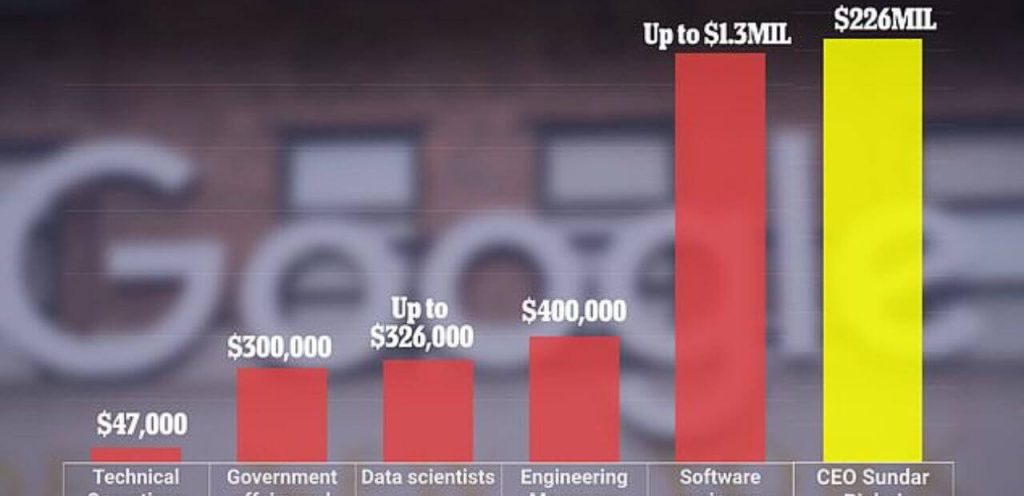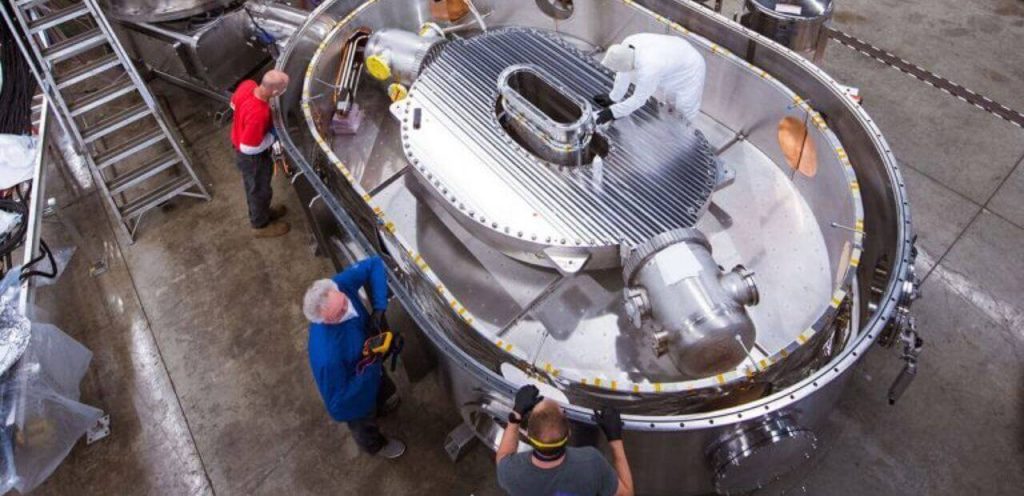Medical diploma courses in Bangladesh offer specialized training in various healthcare fields. These courses are geared towards medical professionals seeking to advance their skills.
Bangladesh’s healthcare system recognizes the importance of specialized training, which is reflected in the variety of medical diploma courses available. Ranging from diplomas in medical ultrasonography to clinical pathology, anesthesiology, and dermatology, these courses cater to doctors looking to enhance their expertise in specific medical domains.
Offered by reputed institutions, including government and private medical colleges as well as universities, these courses typically span one to three years. They combine theoretical knowledge with practical skills, ensuring that graduates are well-prepared for the challenges of their chosen specializations. With affordable fees and a curriculum aligned with international standards, a medical diploma from Bangladesh can be a valuable asset for medical practitioners aiming to deliver better patient care and contribute to the improvement of healthcare services.

Credit: www.ey.com
Introduction To Medical Diploma Courses In Bangladesh
Popularity Of Diploma Courses In Healthcare
Diploma courses in healthcare have gained immense popularity in Bangladesh. They are shorter and more affordable than full-fledged degrees. Students and working professionals favor these courses for their flexibility and career advancement opportunities.- Accessible education for aspiring healthcare professionals
- Practical skills training alongside theoretical studies
- Enhanced employability following graduation
Scope And Prospects For Graduates
Graduates with a medical diploma can pursue diverse career paths. They can work in hospitals, clinics, or private practices. The courses provide foundational skills in various medical specializations.| Specialization Area | Career Prospects |
|---|---|
| Dental Technology | Dental clinics, Laboratories |
| Medical Imaging | Hospitals, Imaging Centers |
| Nursing | Hospitals, Home Care |
Eligibility Criteria
Academic Requirements
Academic qualifications are the first step to ensuring you are on the right track.- HSC pass or equivalent.
- Minimum GPA requirement is 2.5.
Age And Other Criteria
Besides your academic records, age plays a role too.- Candidates must be under 22 years old.
- Good physical health is important.
- Medical tests may be required.
Application Process
Admission Timeline And Procedure
Admissions open twice a year, so mark the calendar. Follow the detailed timeline to ensure timely application:- Check official announcements for application dates.
- Fill out the online application form.
- Submit the form before the deadline.
- Schedule and attend the entrance exam.
- Results are posted online; check your status.
- If selected, confirm your seat promptly.
Documents Needed For Enrollment
Get these documents ready before you start the application:- Academic certificates from previous studies.
- A valid form of identification, such as a passport.
- Passport size photographs.
- Proof of payment for the application fee.
- If applicable, work experience certificates.
Exploring Different Disciplines
Diplomas In Nursing
Nursing diplomas in Bangladesh create skilled caregivers. Courses cover patient care, critical thinking, and medical ethics. Graduates step into roles that support doctors and assist patients in healing. Listed below are key features of Nursing Diplomas:- Duration: Courses span 3-4 years, blending theory with practical training.
- Career Paths: Graduates work in hospitals, clinics, and community health settings.
- Certification: Successful candidates receive a nationally recognized diploma.
Diplomas In Medical Technology
For those drawn to high-tech healthcare, diplomas in medical technology are key. They cover the use of sophisticated equipment to diagnose illness. Students learn in labs and real-world settings. Discover the highlights:| Specializations | Course Length | Skills Gained |
|---|---|---|
| Laboratory, Radiology, Dental Technology | 2-3 years | Testing, imaging, and procedural expertise |
Career Paths After Diploma Certification
Jobs In Hospitals And Clinics
A medical diploma molds professionals ready to serve in hospitals and clinics. Candidates can pursue fulfilling roles that include:- Registered Nurses
- Medical Technologists
- Diagnostic Specialists
- Physiotherapists
- Dental Hygienists
Opportunities In Research And Education
Research and academia equally offer vibrant career options. These include roles as:- Research Assistants
- Laboratory Managers
- Educational Instructors
- Pharmaceutical Associates
Key Institutes Offering Medical Diplomas
Government Institutions
Bangladesh offers a range of government-backed institutions:- Dhaka Medical College – A premier choice for a medical diploma.
- Rajshahi Medical College – Known for its thorough curriculum.
- Chittagong Medical College – Offers specialized diploma courses.
- Sir Salimullah Medical College – Combines tradition with modernity.
- Mymensingh Medical College – Focuses on practical skills.
- National Institute of Traumatology & Orthopaedic Rehabilitation
- Institute of Child and Mother Health
- National Heart Foundation Hospital & Research Institute
Private Colleges And Universities
Private institutions in Bangladesh come with contemporary facilities:- North South University – Offers cutting-edge resources.
- Bangladesh University of Health Sciences – Focuses on research-driven education.
- Bangladesh Medical College – Known for its experienced faculty.
- Ibrahim Medical College – Joins hands-on training with theoretical knowledge.
| Institute Name | Programs Offered | Location |
|---|---|---|
| Badda Alatunnessa Higher Secondary School of Health Technology | Diploma in Medical Technology | Dhaka |
| Institute of Health Technology | Various Health Diplomas | Rajshahi |
Duration And Curriculum
Course Length
Medical diploma courses in Bangladesh typically span from one to three years. This duration varies based on the specialization and institution. Full-time students can usually complete their diplomas in the minimum time frame. Part-time or distant learning options may take longer.Core Subjects And Specializations
A strong foundation in medical knowledge is vital. Diploma courses cover basic medical sciences, such as anatomy, physiology, and pathology. Specializations allow depth in focus areas. They typically include:- Clinical Pathology
- Dental Technology
- Medical Imaging Technology
| Year | Core Subjects | Specializations |
|---|---|---|
| First | Basic Sciences | Chosen Field |
| Second | Clinical Skills | |
| Third | Research/Internship |
Financial Considerations
Tuition Fees And Expenses
Tuition fees vary between institutions. Public colleges often charge less than private ones. Here’s a simplified look:| College Type | Estimated Yearly Tuition | Other Expenses |
|---|---|---|
| Public | 10,000-50,000 BDT | Books, supplies, living costs |
| Private | 100,000-500,000 BDT | Uniforms, equipment, personal expenses |
Scholarships And Funding Options
Need financial support? Several options are available:- Government scholarships: For top-performing students.
- Institution-based grants: Check your college for specific offerings.
- Private funds: Provided by NGOs and private organizations.
Integration With Higher Education
Bridging Courses To Advanced Degrees
Bangladeshi medical diplomas offer various bridging courses. These courses allow graduates to enroll in advanced degree programs. Students can upgrade their knowledge and skills. The table below shows popular bridging courses: You can add more rows as needed| Diploma Course | Bridging Course | Advanced Degree |
|---|---|---|
| Diploma in Nursing | BSc Nursing Bridge | Bachelor of Science in Nursing |
| Diploma in Medical Technology | Applied Science Bridge | Bachelor of Applied Science |
International Recognition And Transfers
Bangladesh’s medical diploma courses are known for their quality. Many hold recognition from global health institutions. This recognition helps students transfer credits. They also enroll in universities abroad. Below is a list of benefits:- Enhanced global job prospects
- Seamless credit transfer to international universities
- Partnerships with foreign healthcare bodies
Clinical Training And Internship
Hands-on Experience In Healthcare Settings
Bangladeshi medical diploma courses emphasize hands-on experience. This training is crucial. It happens in hospitals, clinics, and laboratories. Students observe and perform medical procedures under supervision.- Observation of seasoned professionals in action
- Participation in patient care
- Learning state-of-the-art medical technologies
Internship Programs And Their Importance
Upon completing the coursework, students undertake internships. An internship allows students to apply their knowledge in real-life situations. They become part of a medical team. They learn through doing.| Internship Segment | Duration | Focus Area |
|---|---|---|
| Initial Phase | 3-6 months | Basic Medical Training |
| Advanced Phase | 6-12 months | Specialized Medical Fields |
Licensing And Certification
Regulatory Bodies And Examinations
In Bangladesh, medical professionals must adhere to guidelines set by prominent regulatory bodies such as:- Bangladesh Medical and Dental Council (BMDC) – The primary regulatory authority for medical practitioners.
- Directorate General of Health Services (DGHS) – Supervises health services and postgraduate medical education.
- BMDC Registration Exam – A compulsory test for practice authorization.
- Postgraduate Admission Test – For further specialization opportunities.
Maintaining And Renewing Professional Credentials
Credential maintenance ensures medical professionals stay up-to-date with medical advancements. Key steps involve:- Attending Continuing Medical Education (CME) sessions.
- Accumulating a set number of professional development credits.
- Submitting renewal applications before certification expiry.
Advancements In Medical Education
Incorporating Technology In Training
Bangladesh’s medical diploma courses now integrate advanced technology into their curricula. This prepares students for a tech-driven healthcare environment. Notable advancements include:- Simulation labs that mimic real-life medical scenarios.
- Use of virtual reality (VR) for immersive anatomical studies.
- Digital libraries with vast medical resources.
Emphasis On Evidence-based Practice
In the realm of medical diploma courses, there’s a strong push towards evidence-based medicine (EBM). EBM uses current, high-quality research to guide healthcare decisions. Key elements include:| Aspect | Details |
|---|---|
| Training | Students learn to critically evaluate medical literature. |
| Clinical Practice | Application of research in patient care. |
Global Opportunities And Outreach
Working Abroad
Bangladeshi medical diploma holders enjoy significant recognition across many countries, thanks to the comprehensive curriculum that meets global standards. Job opportunities abroad are plentiful for graduates. They often secure positions in:- Hospitals and clinics
- Research institutions
- Public health organizations
- Private healthcare sectors
Collaborations And Exchange Programs
Medical diplomas in Bangladesh frequently involve exchange programs and collaborations, fostering international ties and mutual learning. These ventures provide:- Academic knowledge sharing
- Hands-on clinical exposure in advanced healthcare settings
- Opportunities to participate in cutting-edge research
Challenges And Barriers
Adapting To Industry Changes
The medical sector evolves rapidly, with new technologies and treatments emerging constantly. Professionals must stay current, but curricula sometimes lag. Here are some issues:- Integration of Digital Tools: Not all programs have the resources to offer training on the latest digital health technologies.
- Regulatory Understanding: Changes in healthcare laws can affect practices, requiring immediate curriculum updates.
- Emerging Specialties: New areas of specialization demand inclusion in educational programs.
Addressing The Skills Gap
A skills gap affects healthcare delivery quality. Several factors contribute:- Practical Experience: There is often a disconnect between theoretical knowledge and real-world application.
- Soft Skills: Communication, teamwork, and critical thinking need more focus.
- Continual Learning: There’s a need for structured ongoing training post-certification.
| Challenge | Response |
|---|---|
| Outdated Curriculum | Partnering with hospitals for real-time updates. |
| Lack of Resources | Seeking international collaborations for resource sharing. |
| Inadequate Training | Incorporating simulation labs and online courses. |
Success Stories Of Diploma Graduates
Inspirational Career Journeys
Graduates from medical diploma courses in Bangladesh have surpassed expectations. They went from studious learners to respected professionals. Here are just a few of the incredible transformations they’ve experienced:- A nurse who became a hospital administrator after completing a Diploma in Hospital Management.
- An assistant pharmacist is now leading a research team thanks to his Diploma in Laboratory Medicine.
- A healthcare assistant who climbed up ranks to be a senior technician with a Diploma in Medical Ultrasound.
Role Models In The Medical Field
Role models act as guiding stars for countless upcoming medical professionals. Here we showcase two inspiring figures who began their journey with a simple diploma:| Name | Diploma Course | Current Position |
|---|---|---|
| Dr. Amina Begum | Diploma in Child Health | Chief Pediatrician |
| Mr. Mahmud Hasan | Diploma in Dental Technology | Renowned Dental Technician |
Continuous Professional Development
In the dynamic world of healthcare, Continuous Professional Development (CPD) stands crucial for medical professionals in Bangladesh. CPD involves ongoing learning and training to maintain and enhance professional skills. Through medical diploma courses, practitioners can ensure their knowledge remains fresh and relevant.
Upskilling And Reskilling
The medical field constantly evolves with new treatments and technology. Medical diploma courses offer the perfect avenue for upskilling and reskilling. Upskilling refers to enhancing current skills. Reskilling involves learning new skills for a different role or function. Below are key reasons why upskilling and reskilling matter:
- Stay updated with the latest medical advancements
- Meet the growing demands of healthcare
- Improve patient care and outcomes
- Enhance job security and career progression
Professional Workshops And Seminars
Workshops and seminars complement medical diploma courses as they provide hands-on experience and practical skills. They allow professionals to:
- Interact with industry experts
- Discuss contemporary healthcare issues
- Develop specialized competencies
- Network with peers
These sessions ensure that medical personnel can apply what they learn directly to their practice, thereby improving healthcare delivery.
Relationship With Healthcare Industry
Meeting The Demands Of Medical Services
In Bangladesh, the healthcare industry continually seeks skilled professionals to address the growing needs of its population. Medical Diploma courses bridge the gap between availability and necessity by:- Educating and training individuals to meet industry standards.
- Providing hands-on experience through clinical rotations and externships.
- Developing specialized skills in high-demand areas, such as radiology and emergency medicine.
Partnerships Between Education And Industry
Strong connections between educational institutions and healthcare providers enrich the quality of medical education. Such partnerships:- Sync curriculum with current medical practices.
- Enable shared use of modern medical equipment and resources.
- Facilitate employment opportunities for graduates.
Legal And Ethical Training
Understanding Medical Law
Medical law encompasses the regulations healthcare providers must follow. Diploma students learn to understand these laws to protect patients and themselves. Key topics include:- Patient confidentiality
- Healthcare regulations
- Medical malpractice
- Consent in treatment
Ethics In Patient Care
Patient care goes beyond physical treatment. Ethical practice plays a vital role in medical decision-making. Diploma courses cover:- Respecting patient autonomy
- Handling sensitive information
- End-of-life decisions
- Cultural competence in patient interactions
Technological Innovations In Medicine
Impact On Medical Training
Emerging technologies make medical training more immersive. Virtual Reality (VR) and Artificial Intelligence (AI) bring complex concepts to life. Students in Bangladesh experience lifelike simulations. They practice procedures without risk to real patients.- 3D Printing – creates accurate anatomical models for study.
- Big Data Analytics – teaches students to analyze large patient data sets.
Preparing For The Future Of Healthcare
New gadgets and software appear daily. They promise better patient care. The curriculum stays ahead with tech-oriented courses. Here’s a look at some key areas:| Technology | Application in Healthcare |
|---|---|
| Telemedicine | Remote patient consultations |
| Wearable Devices | Continuous health monitoring |

Credit: m.facebook.com
Conclusion: The Future Of Medical Diplomas In Bangladesh
Adapting Education To Future Needs
The world changes, and with it, so must medical education. Bangladesh recognizes this need for adaptation. The curriculum and teaching methodologies for medical diplomas are evolving, injecting cutting-edge practices and technology into the framework.- Bangladesh is incorporating telemedicine, acknowledging its growing role in healthcare.
- Simulation-based training is on the rise, preparing students for real-world scenarios.
- The inclusion of up-to-date research equips students with current knowledge.
Empowering The Next Generation Of Medical Professionals
Empowerment comes from knowledge and the confidence to apply it. Bangladesh’s medical diploma programs are designed to foster both. The aim is to produce not just capable, but also innovative medical professionals.- Training emphasizes practical skills alongside theoretical learning.
- Community health becomes a core focus, addressing societal needs.
- Mentorship and hands-on experience underline the teaching process.
| Course | Specialization | Future Role |
|---|---|---|
| Diploma in Medical Technology | Laboratory, Radiology, Dialysis | Technological Pioneers |
| Diploma in Nursing | Critical Care, Operation Theatre Techniques | Healthcare Leaders |
| Diploma in Midwifery | Maternal and Neonatal Care | Community Champions |

Credit: www.futurelearn.com
Frequently Asked Questions On Medical Diploma Courses In Bangladesh
What Are Popular Medical Diploma Courses In Bangladesh?
A wide range of popular diploma courses includes Medical Ultrasound, Anaesthesiology, Child Health, and Clinical Pathology among others.
How Long Are Medical Diploma Programs In Bangladesh?
Most medical diploma programs in Bangladesh span 2-3 years, including coursework and practical training.
Can International Students Enroll In Medical Diplomas?
Yes, international students can apply to medical diploma courses in Bangladesh, subject to meeting specific eligibility criteria.
What Are The Eligibility Criteria For These Courses?
Eligibility typically requires a Bachelor of Medicine degree or its equivalent from a recognized institution.
Is Clinical Experience Required For Admissions?
Clinical experience is often a prerequisite, but requirements vary depending on the institution and specific course.
Conclusion
Exploring medical diploma courses in Bangladesh unlocks myriad opportunities for aspiring healthcare professionals. Tailored to equip students with practical skills, these programs stand as a testament to the evolving medical education landscape. Embarking on this academic journey promises a rewarding career, serving communities with expertise and compassion.
Choose your path wisely and embrace the potential that lies ahead.









